ProtonVPN in brief:
- P2P allowed: Yes, on specified servers
- Business location: Switzerland
- Number of servers: 249
- Number of country locations: 19
- Cost: Free, $48, $96, or $288 per year
- VPN protocol (default): OpenVPN
- Data encryption: AES-256
- Data authentication: HMAC with SHA-256
- Handshake encryption: 2048-bit RSA
When you use a third-party VPN there’s always a certain amount of trust you have to have in your service provider. Sometimes companies make that really hard by hiding who they are or basing themselves in exotic locations. Then there are services that make trust easier—like ProtonVPN, from the creator of ProtonMail.
ProtonVPN is a great choice for new users. It offers no guesswork about who’s behind the service and offers helpful articles about what you should, and should not, expect from a VPN. It also posts an annual transparency report (as several other VPNs do), and explains the encryption it uses.
Note: This review is part of our best VPNs roundup. Go there for details about competing products and how we tested them.
ProtonVPN for Windows starts by displaying a map of the world with green triangles signifying the countries where ProtonVPN has servers. If you prefer to use the VPN without the map, there’s an arrow button on the top left to collapse it for a more smartphone-like interface.
On the left rail are your connection options. There’s a Quick Connect button at the top if you want ProtonVPN to choose the fastest server based on your current location. Otherwise, you can scroll down the list of countries.
For a deep dive into the country-specific servers, click on the downward facing arrow to the right of each country in the list. This will show you all the server options for that location. There’s a circle with a green indicator for each server showing its current capacity. You can also hover over the circle to find out the capacity measured as a percentage. If you see a “P” in a square next to a server that means its available only to premium subscribers; there are also TOR servers, and the symbol with two arrows indicates the server supports P2P file sharing.
Once you’ve connected, the map transforms showing a line to your virtual location and the home symbol at the top center of the map. Below the map you’ll see connection information such as session duration, up and down bandwidth volumes and speeds, as well as a bandwidth graph.
Features and services
ProtonVPN offers a number of extras depending on which level of service you have. The Secure Core feature is for Plus and Visionary subscribers only, for example. Secure Core is a multi-hop VPN connection where it uses two VPN connections before exposing you to the open internet. But unlike typical multi-hop implementations, Secure Core is a one-click affair where you choose the exit country and have minimal options for the first connection.
The first hop runs through either Iceland, Sweden, or Switzerland before shuttling you off to the country of your choice–only 11 country locations support Secure Core exits. Depending on the country, you may have some choice as to where the first hop goes through, but many countries have only one of the three options. France only supports a first hop through Sweden, for example, while for Germany it’s Iceland.
ProtonVPN says Secure Core puts your traffic through “privacy friendly countries” first (Iceland, Sweden, and Switzerland). The aim is to protect a user’s privacy as much as possible and defend against network traffic monitoring. ProtonVPN says that this method makes it harder for an attacker to discover a user’s true IP address or attempt to match browsing activity to the user. There’s a fuller explanation on the ProtonVPN website. Secure Core must be explicitly activated at the top of the country list in the left rail.
ProtonVPN also supports Forward Secrecy, which uses one-time session encryption keys to prevent someone from stealing encryption keys from a following VPN session and using those to decrypt earlier sessions.
If TOR is your thing, ProtonVPN supports TOR connections over VPN on specific servers. Again, this feature is only available to Plus and Visionary subscribers.
There are also the usual VPN features such as DNS leak protection and an Internet Kill Switch that halts your internet access should the VPN connection drop.
If you want to use different VPN connections based on contexts such as home, work, or travel, ProtonVPN lets you set profiles using the tab in the left rail.
When creating a profile you can choose to use a standard server connection, the Secure Core feature, P2P servers, or TOR servers. You can also choose to use OpenVPN over UDP or TCP, and the specific server you want to use.
Beyond VPN configuration, ProtonVPN also touts the security of the data centers it uses in Iceland, Sweden, and Switzerland—the privacy-respecting countries. These are a collection of data centers in former military bases, remodeled fallout shelters, and other hard-to-reach locations. The implication being these servers are physically, as well as digitally, secure.
ProtonVPN is available for Windows, Mac, Android, and iOS. Pricing is varied. The Basic plan gets you “high” speeds and supports two simultaneous devices for $48 per year. The Plus plan is $96 per year, lets you use the VPN on up to five devices simultaneously, offers the service’s top speeds, a larger number of servers, TOR, and the Secure Core feature.
The deluxe Visionary package costs a whopping $288 per year with all the Plus features, as well as a ProtonMail Visionary account.
Privacy, anonymity, and trust
ProtonVPN is managed by ProtonVPN AG, which is run by the same team that runs ProtonMail—Proton Technologies AG. The company offices are at Chemin Du Pré Fleuri 3 Plan-les-Ouates, Geneva, Switzerland. The CEO is Andy Yen, and the CTO is Bart Butler.
ProtonVPN’s privacy policy says the company doesn’t track your browsing activity, your IP address, or bandwidth usage. The only thing ProtonVPN says it does track from specific accounts is the timestamp of your most recent successful login attempt. This is overwritten with every successful login. ProtonVPN says it keeps this information to protect user accounts from password brute force attacks. The timestamp does not include your IP address or location, only the time and date of your login, according to ProtonVPN.
If you use ProtonVPN on mobile, the company also tracks crash reports. ProtonVPN also tracks the geographic distribution of its users on an aggregated, global level. It uses this data to help allocate resources, counteract national attempts to block ProtonVPN, and for marketing purposes (ProtonVPN calls this “outreach and growth initiatives”).
For payments, ProtonVPN accepts credit cards, PayPal, cash via regular mail, or Bitcoin via direct wallet-to-wallet transfers. To sign up for an account, ProtonVPN requires a username, email, and password.
Overall, ProtonVPN provides good privacy protections—although it doesn’t quite rise to the standard of Mullvad, our favorite overall VPN.
Performance
ProtonVPN boasts a minimum 1Gbps link for all its servers with many actually supporting up to 10Gbps. That investment in high-quality speeds appears to have paid off. ProtonVPN comes awfully close but doesn’t quite beat our current speed champion, HotSpot Shield.
For this speed test we ran it two different ways. First we did a test with ProtonVPN in the standard configuration, and then we tested again with Secure Core enabled.
During the standard tests, ProtonVPN was able to keep 61.88 percent of the base speed based on an average from five different countries. All speed tests were standout with almost all of them hitting 50Mbps—only Australia was below that at around 27Mbps. The base speed on the day of testing was around 90Mbps.
Taking a look at Secure Core speeds, ProtonVPN still beat most VPN services we’ve tested. Overall, ProtonVPN scored an average of 46.73 percent of the base speed using the same five locations with a hop from Sweden, Switzerland, or Iceland before that.
Bottom line is that ProtonVPN should offer fantastic speeds for most people, with the obvious caveat that speed results can change based on the capability of your devices as well as your location, home internet connection, and overall user traffic in your area.
Conclusion
ProtonVPN is a fantastic choice for a VPN. Its privacy protections are excellent, though some hard-liners may balk at the single-session time stamp collection. For most users, however, the degree of privacy should be enough. It doesn’t quite rise to the privacy and pseudo-anonymity promises that Mullvad offers, but it’s still really good.
In my tests, ProtonVPN wasn’t a help to get past Netflix’s regional restrictions, but if you’re more interested in security and privacy it’s hard to go wrong with ProtonVPN.
The significant downside with ProtonVPN is that it is far more expensive than other top VPNs. The more common pricing is a year of service with unlimited bandwidth for up to five devices for $40 to $70. The $96 Plus plan is the closest to the standard offering.
Still, you do get a lot of value for your money.
Editor’s note: Because online services are often iterative, gaining new features and performance improvements over time, this review is subject to change in order to accurately reflect the current state of the service. Any changes to text or our final review verdict will be noted at the top of this article.
(source: pcword.com)


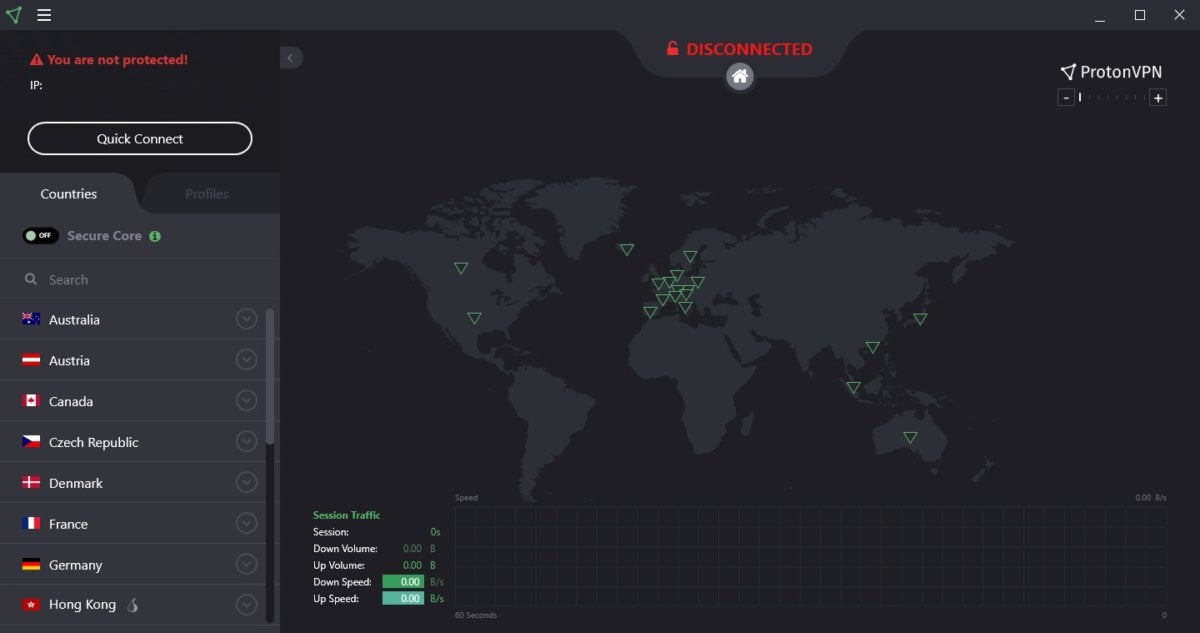
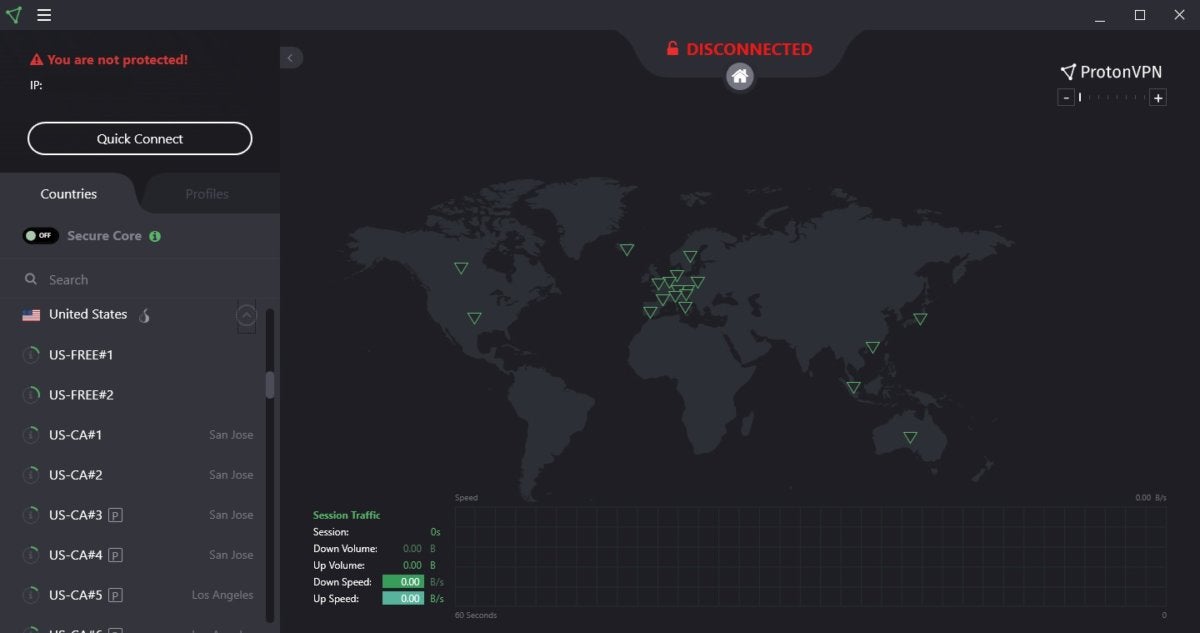
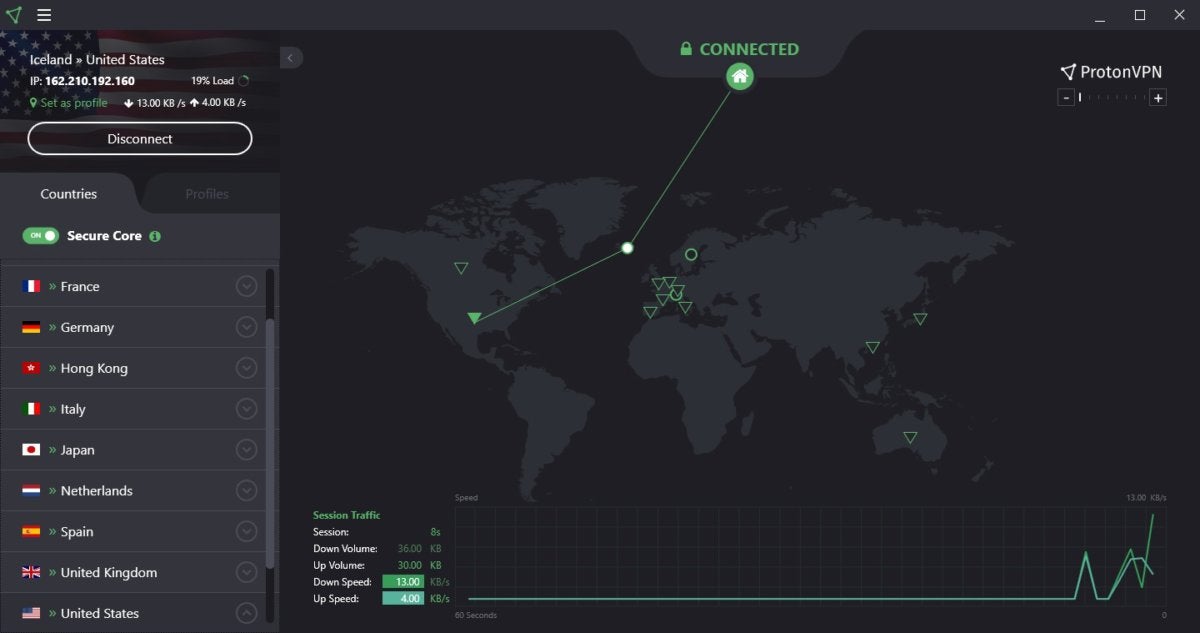
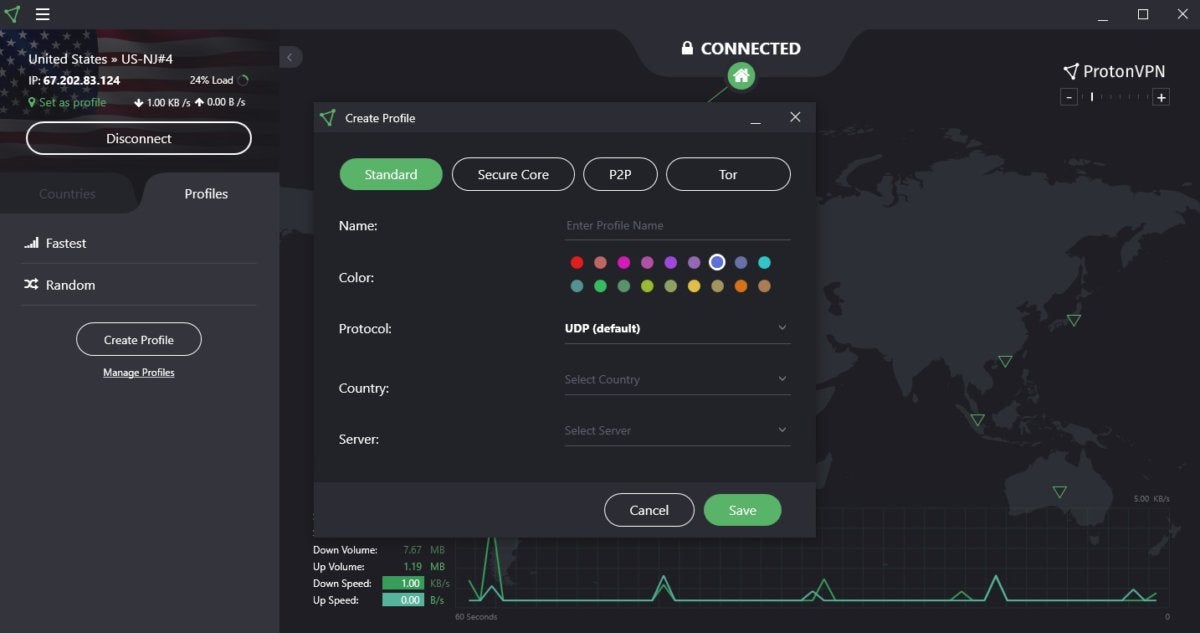
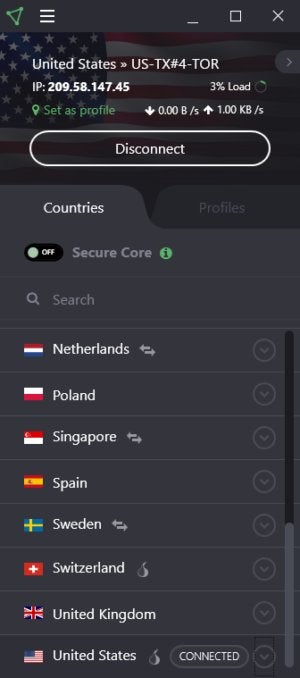
No comments:
Post a Comment